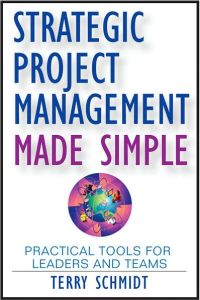Únase a getAbstract para acceder al resumen.

Únase a getAbstract para acceder al resumen.
Terry Schmidt
Strategic Project Management Made Simple
Practical Tools for Leaders and Teams
Wiley, 2009
¿De qué se trata?
Open this box for tools that enable you to design, align and manage meaningful projects more strategically.
Recommendation
Have you ever been part of a project that seemed to be an empty exercise in chart maintenance? Terry Schmidt shows you how to avoid that pitfall by designing your project to provide real strategic value to your company. He also provides excellent tools you can use on every project to make sure that its work is meaningful, that your logical design for the project is sound and that you have organized its work in purposeful chunks. Since project management depends on people, Schmidt shows you how to involve your colleagues, team members and stakeholders. He organizes his chapters for clarity and ends them with summaries of the main points. He provides the forms you need, and explains how to adapt and use them. Schmidt illustrates his principles with real-world examples drawn from his long experience consulting with companies and governments. He even throws in some nice humor and a few quite funny cartoons. getAbstract recommends this helpful, thoughtful look at project management. Schmidt goes beyond explaining the right techniques to focus on doing projects in a way that provides strategic value.
Summary
About the Author
Terry Schmidt is a certified project management professional (PMP with 30-plus years of experience. He teaches project management at UCLA and the University of Wisconsin.


















Comment on this summary